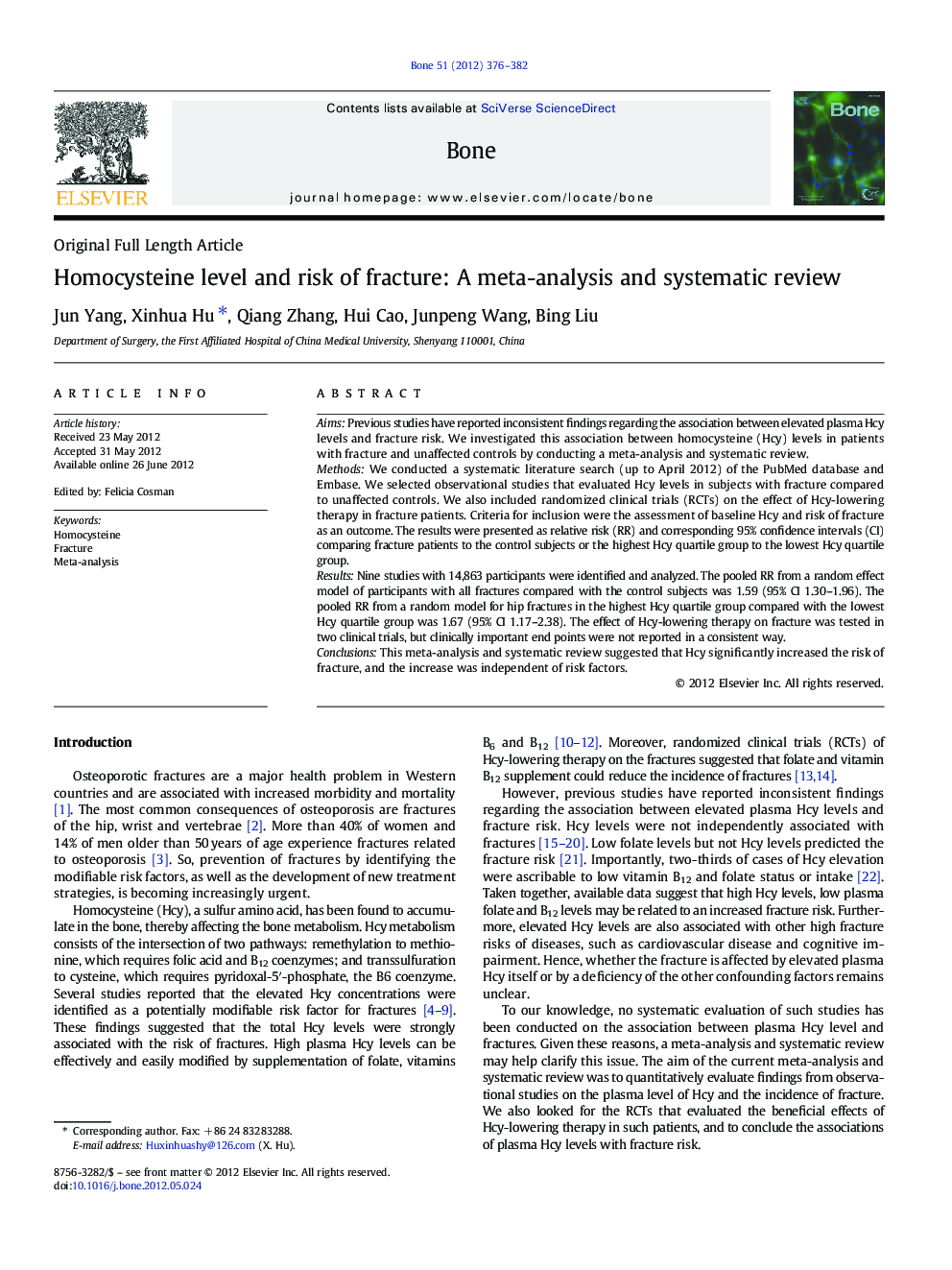| Article ID | Journal | Published Year | Pages | File Type |
|---|---|---|---|---|
| 5890755 | Bone | 2012 | 7 Pages |
AimsPrevious studies have reported inconsistent findings regarding the association between elevated plasma Hcy levels and fracture risk. We investigated this association between homocysteine (Hcy) levels in patients with fracture and unaffected controls by conducting a meta-analysis and systematic review.MethodsWe conducted a systematic literature search (up to April 2012) of the PubMed database and Embase. We selected observational studies that evaluated Hcy levels in subjects with fracture compared to unaffected controls. We also included randomized clinical trials (RCTs) on the effect of Hcy-lowering therapy in fracture patients. Criteria for inclusion were the assessment of baseline Hcy and risk of fracture as an outcome. The results were presented as relative risk (RR) and corresponding 95% confidence intervals (CI) comparing fracture patients to the control subjects or the highest Hcy quartile group to the lowest Hcy quartile group.ResultsNine studies with 14,863 participants were identified and analyzed. The pooled RR from a random effect model of participants with all fractures compared with the control subjects was 1.59 (95% CI 1.30-1.96). The pooled RR from a random model for hip fractures in the highest Hcy quartile group compared with the lowest Hcy quartile group was 1.67 (95% CI 1.17-2.38). The effect of Hcy-lowering therapy on fracture was tested in two clinical trials, but clinically important end points were not reported in a consistent way.ConclusionsThis meta-analysis and systematic review suggested that Hcy significantly increased the risk of fracture, and the increase was independent of risk factors.
⺠Inconsistent findings regarding the association between elevated plasma Hcy levels and fracture risk. ⺠We performed a meta-analysis and systematic review on plasma Hcy levels and fracture risk. ⺠Hcy significantly increased the risk of fracture, and the increase was independent of risk factors. ⺠Routine Hcy assays will be helpful in identifying fracture risk among elderly people.
